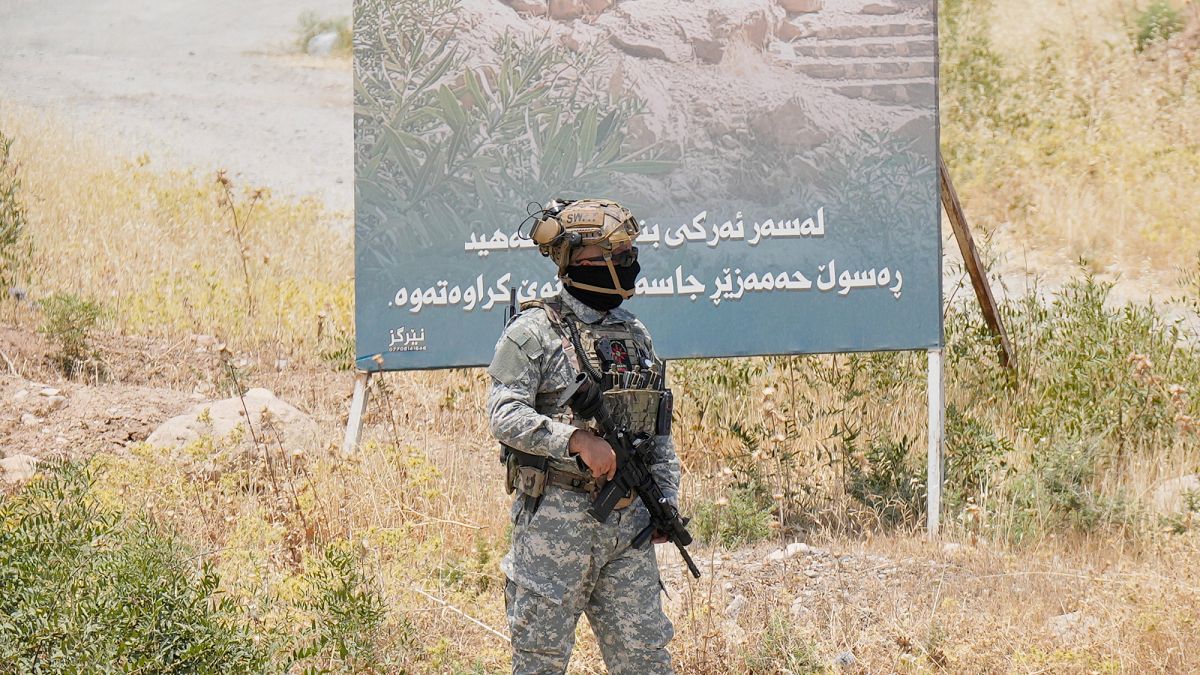

In a world that continuously strives for peace and stability, several regions are witnessing significant developments in their efforts to foster harmony and resolve longstanding conflicts. From the resolution endeavors of Kurdish militants in Iraq to the tentative dialogues between Israel and Palestine, and the diplomatic clarifications regarding drone activity in Kazakhstan, recent events reflect a cautious yet hopeful trajectory towards peace.
In a progressive step towards reconciliation, the Kurdistan Workers’ Party (PKK) militants in Iraq have commenced the process of laying down their arms. This move is part of a broader peace initiative with Turkey, aimed at ending the prolonged conflict that has spanned decades. Originally orchestrated with the vision of establishing a Kurdish state in southeastern Turkey, the PKK’s objectives have gradually evolved. Today, their struggle focuses on securing greater autonomy and rights for Turkey’s Kurdish population. This historic gesture signals a desire for peace and stability in a region that has long been fraught with tension and conflict. The ongoing negotiations and the willingness of the PKK to disarm mark a positive and reassuring step towards achieving sustainable peace.
Meanwhile, in Europe, a significant diplomatic engagement is set to take place in Brussels, where ministers from Israel and Palestine are poised to gather for high-level discussions. This meeting comes at a sensitive time, particularly as the European Union deliberates its response to Israel’s alleged breach of its partnership agreement with the bloc. Despite the strained ties, the convergence of Israeli and Palestinian representatives in Brussels underscores a commitment to dialogue and the pursuit of peaceful solutions. Though the challenges remain substantial, this forthcoming gathering offers a glimmer of hope that constructive conversation and collaboration could pave the way for a renewed peace process between the two parties.
On another diplomatic front, Kazakhstan finds itself addressing international queries following the crash of a drone-like object in western Kazakhstan, leading to accusations from Russia against Ukraine. The Kazakh Ministry of Foreign Affairs promptly refuted claims of enabling Ukrainian drone attacks on Russia from its territory. Investigations are ongoing to ascertain the origins and intentions behind the incident. Kazakhstan’s prompt response and transparency in handling the situation emphasize its role as a neutral party, committed to peace and stability in Central Asia. This clarification not only seeks to prevent the escalation of regional tensions but also reinforces the importance of diplomatic integrity and open communication in resolving disputes.
Each of these scenarios highlights the complex tapestry of global diplomacy, where progress is often characterized by small yet meaningful steps towards resolution. As the international community navigates these multifaceted challenges, the emphasis remains on fostering dialogue, understanding, and cooperation. While the paths to peace are rarely straightforward, the collective willingness to engage in conversations and make conciliatory gestures heralds a hopeful outlook for regions marred by historical grievances.
In the grand scheme, these developments serve as reminders of the ongoing efforts required to build bridges and mend divides that have long separated communities and nations. As peace processes and dialogues continue to unfold across different parts of the globe, the commitment to finding common ground and striving for harmonious coexistence remains a shared vision. Such dedication to peace not only nurtures regional stability but also contributes to a more united and peaceful world.
Source: {link}
